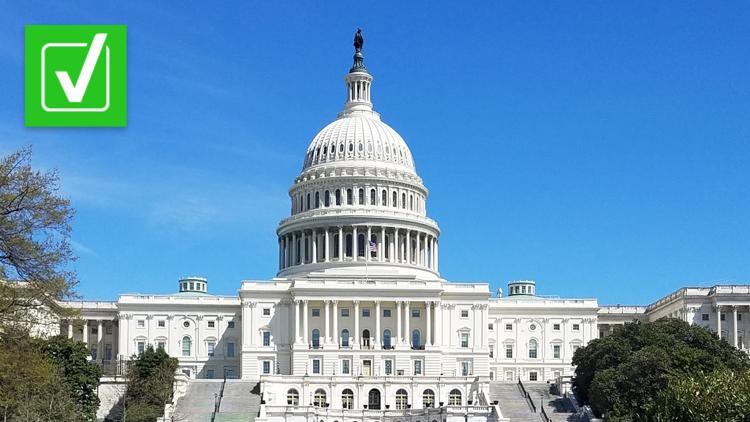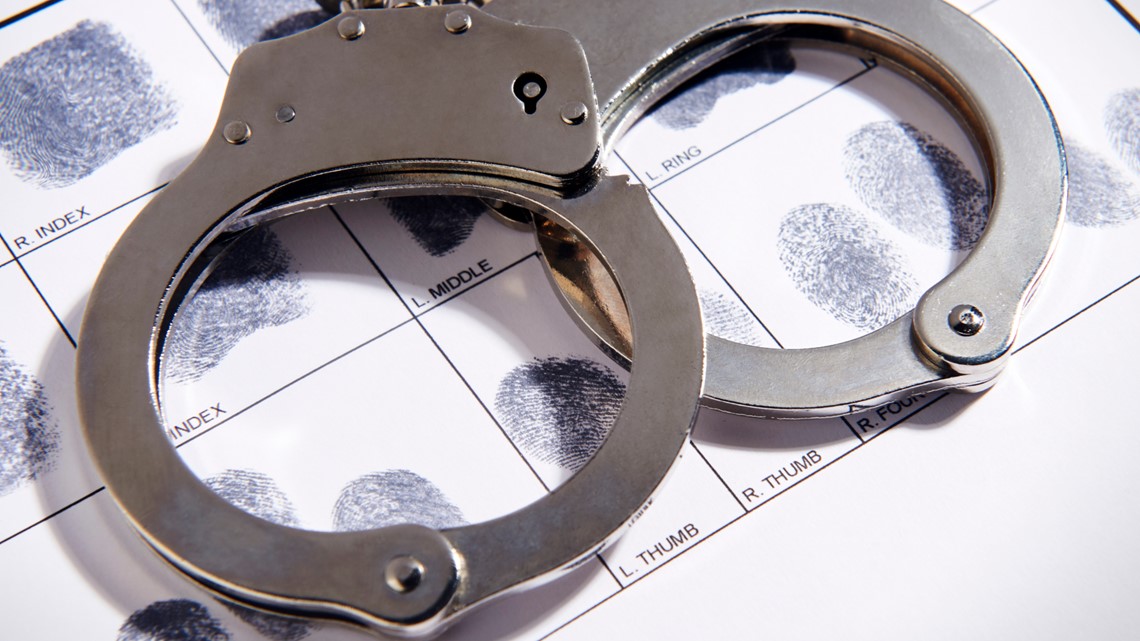After Trump made many comments throughout his campaign about pardoning Jan. 6 rioters, people are wondering if it's possible for him to do so once he’s president.


More than 1,230 people have been charged with federal crimes ranging from trespassing misdemeanor offenses to felonies for assaulting policy officers, after a breach in the U.S. Capitol on Jan. 6, 2021.
During his campaign, president-elect Donald Trump shared his interest in pardoning people who have been convicted of crimes related to the Jan. 6 insurrection. In January, he wrote on Truth Social, “My first acts as your next President will be to Close the Border, DRILL, BABY, DRILL, and Free the January 6 Hostages being wrongfully imprisoned!”
VERIFY reader Susan reached out to ask if Trump can pardon those with insurrection-related convictions.
THE QUESTION
Will Donald Trump have the authority to pardon Jan. 6 rioters once he is president?
THE SOURCES
THE ANSWER
![]()
Yes, Donald Trump will have the ability to pardon Jan. 6 rioters once he is president.
WHAT WE FOUND
Once he is inaugurated as the 47th president of the United States, Donald Trump will have the authority to pardon all of the people who have been convicted of federal offenses in connection to the Jan. 6, 2021 riot.
Article II, Section 2, Clause 1 in the U.S. Constitution gives a president the power “to grant Reprieves and Pardons for Offences against the United States, except in Cases of Impeachment.”
The Constitution does include some restrictions for how a president can pardon people. For example, a president can only pardon federal crimes, not state crimes.
Because the Capitol building is considered federal property, the vast majority of Capitol riot convictions are for federal charges, and thus eligible for pardoning by the president.
According to the United States Attorney’s Office’s latest report, approximately 944 people have been sentenced for federal crimes committed on Jan. 6. Of these, 562 were sentenced to incarceration for periods ranging from 10 days to 20 years.
These charges include assault of a police officer and seditious conspiracy. People who have not yet pleaded guilty or been sentenced, could also be eligible to be pardoned as the Constitution does not restrict this, although instances of that are rare, according to the Office of the Pardon Attorney.
“It would be highly unusual, but there have been a few cases where people who had not been charged with a crime were pardoned,” the Office of the Pardon Attorney says.
Earlier this week, Judge Rudolph Contreras agreed to postpone the trial for William Pope, a man facing multiple charges related to the Jan. 6 riots, until after the inauguration due to the possibility that Pope could ultimately be pardoned shortly after conviction.
During his previous presidential term, Trump pardoned 143 people, the U.S. Department of Justice reports. This includes Joseph Arpaio, who Trump pardoned after conviction, but before sentencing.
The VERIFY team works to separate fact from fiction so that you can understand what is true and false. Please consider subscribing to our daily newsletter, text alerts and our YouTube channel. You can also follow us on Snapchat, Instagram, Facebook and TikTok. Learn More »
Follow Us
Want something VERIFIED?
Text: 202-410-8808
.png)









 English (US) ·
English (US) ·